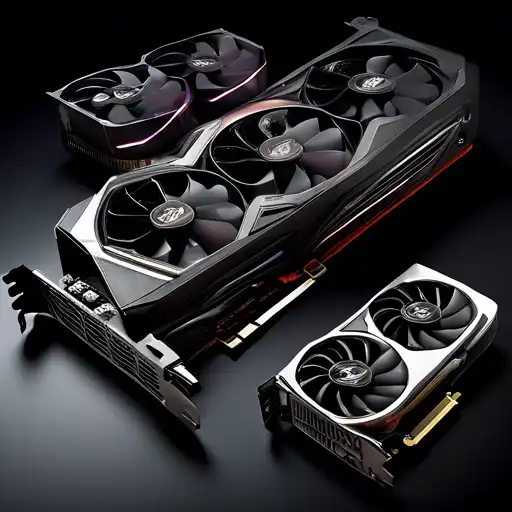Introduction to Choosing the Right GPU
Choosing the right GPU (Graphics Processing Unit) is crucial for an optimal gaming experience. Whether you're building a new PC or upgrading an existing one, the GPU you select can significantly impact your gaming performance, visuals, and overall enjoyment. This guide will walk you through the key factors to consider when selecting the perfect GPU for your gaming setup.
Understanding GPU Specifications
Before diving into the market, it's essential to understand the specifications that define a GPU's performance. Key specs include:
- Core Clock Speed: Measured in MHz, this indicates how fast the GPU can process graphics.
- Memory: VRAM (Video RAM) is crucial for storing textures and assets. More VRAM allows for higher resolution textures and better performance at higher resolutions.
- Memory Bandwidth: This affects how quickly the GPU can access the VRAM, impacting performance in high-resolution gaming.
- CUDA Cores/Stream Processors: These are the GPU's processing units. More cores generally mean better performance.
Matching the GPU to Your Gaming Needs
Not all games require the same level of GPU power. Consider the following:
- Casual Gaming: For less demanding games or older titles, a mid-range GPU will suffice.
- High-End Gaming: Modern AAA titles at high settings require a powerful GPU with ample VRAM and high core counts.
- VR Gaming: Virtual reality games demand high frame rates and resolutions, necessitating a top-tier GPU.
Budget Considerations
GPUs come in a wide range of prices. Setting a budget beforehand can help narrow down your options. Remember, the most expensive GPU isn't always the best choice for your specific needs. Balance performance with cost to find the best value.
Future-Proofing Your Purchase
Technology evolves rapidly. To ensure your GPU remains relevant for years, consider:
- Support for Latest APIs: Look for GPUs that support DirectX 12 Ultimate or Vulkan for future game compatibility.
- Ray Tracing and DLSS: These technologies are becoming standard in new games. GPUs that support them will offer better future performance.
Conclusion
Selecting the right GPU involves balancing performance, budget, and future needs. By understanding GPU specifications and matching them to your gaming requirements, you can make an informed decision that enhances your gaming experience. For more tips on building or upgrading your gaming PC, check out our gaming PC guide.
